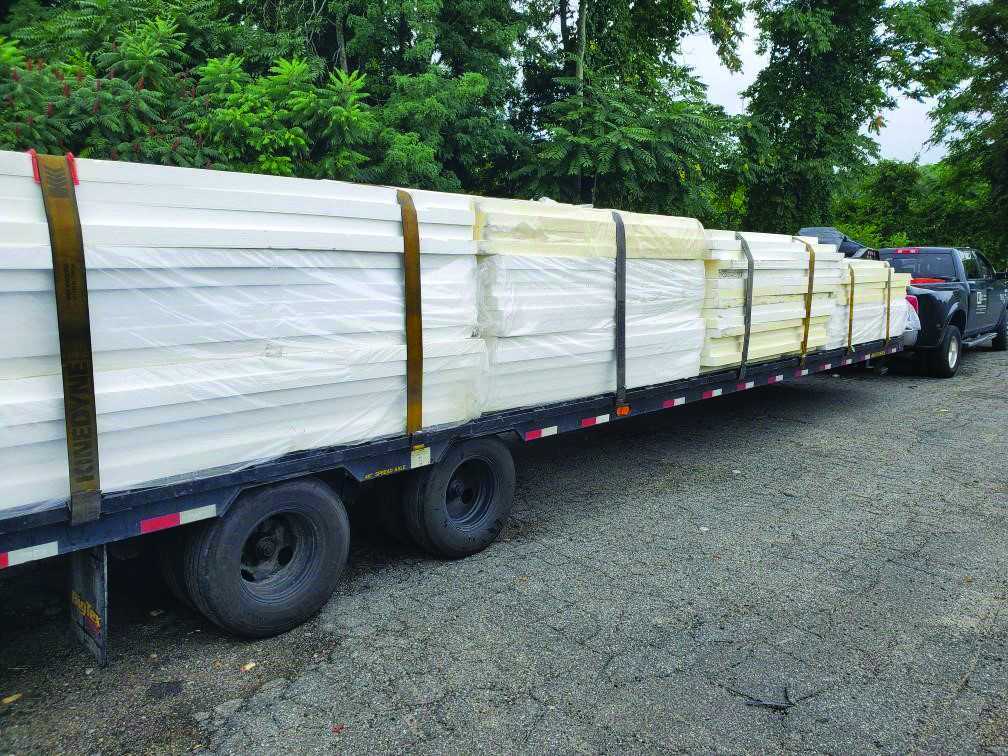
Rigid Insulation: What Is It and How to Use It?
Rigid insulation, a type of thermal insulation, is primarily designed to resist heat flow and provide a protective barrier between the external environment and a building’s interior. Comprised of panels made from various materials, such as expanded or extruded polystyrene, polyisocyanurate, and fiberglass, rigid insulation offers a high insulation value with relatively thin materials.

Primary Uses of Rigid Insulation:
- Wall Insulation: Rigid insulation panels can be applied to both the interior and exterior walls of a building. On exteriors, they provide continuous insulation that reduces thermal bridging and improves energy efficiency.
- Roof Insulation: For flat or low-sloped roofs, rigid insulation is an excellent choice. When installed above the roof assembly, it can protect the building from heat gain and loss, reducing energy consumption.
- Foundation and Slab Insulation: Installing rigid insulation beneath slabs or around foundations helps in preventing heat transfer between the ground and the building, ensuring more stable indoor temperatures.
- Basement Insulation: Rigid panels can be applied to basement walls to prevent the loss of heat and reduce the risk of moisture-related problems.
- Cavity Wall Insulation: Rigid insulation can be inserted into wall cavities to increase a wall’s thermal resistance.
- Soffit and Eave Insulation: In areas where there’s a risk of moisture accumulation, rigid insulation provides both insulation and a moisture barrier.
Benefits of Rigid Insulation:
- High R-Value: Rigid insulation typically offers a higher R-value (thermal resistance) per inch compared to other forms of insulation.
- Moisture Resistance: Many types of rigid insulation are water-resistant, making them ideal for places prone to moisture.
- Durability: Rigid insulation panels are less susceptible to damage and can last for a long time without degrading in performance.
- Ease of Installation: With their firm and sturdy nature, these panels can be easily cut to fit various spaces and can be quickly installed.
Rigid insulation is a versatile and efficient solution for various insulation needs in construction. Its diverse applications and benefits make it a popular choice among builders and homeowners aiming for energy efficiency and protection against the elements.
Types of Rigid Insulation We Have:
- POLYISOCYANURATE – ISO
Closed-cell, rigid foam board insulation that is faced with either a composite material, or foil. Polyiso insulation is very thermally efficient. LTTR-values for polyiso insulation can range from 6.0 to 6.5 per inch. Its High R-value, leads to improved energy efficiency.
- EXTRUDED POLYSTYRENE – XPS
Closed cell, moisture-resistant rigid foam board for a wide variety of building applications XPS foam panels are typically used for below-grade applications such as foundations, beneath slabs, and below grade environments where moisture can be present. Superior stable insulating properties, regardless of moisture content.
- EXPANDED POLYSTYRENE – EPS
Expanded polystyrene is a rigid and tough, closed-cell foam. It is usually white and made of pre-expanded polystyrene beads. Sheets are commonly packaged as rigid panels, which are also known as “bead-board”. Closed-cell panels, provides a lightweight panel, with minimal moisture absorption and low vapor permanence. A more economical option compared to XPS.
Talk to Our Experts
Our inventory is very diverse. Please contact us for your specific needs.
